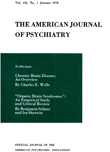ENFORCED RESTRICTION OF COMMUNICATION, ITS IMPLICATIONS FOR THE EMOTIONAL AND INTELLECTUAL DEVELOPMENT OF THE DEAF CHILD
Abstract
This paper does not criticize the great work that is being done to promote the meaningful growth and education of the deaf child and helping him to achieve as much oral facility as possible. It is presented in the hope that hand in hand with this, there will be a more tolerant attitude to the deaf child's need for language through signs, until such time as language through oral speech may replace it. It is felt that one may enhance the other, rather than being antithetical to each other. Some of the negative aspects of the present attitude have been presented with the hope that the questions raised here will arouse further interest in this matter and stimulate others to study this problem.
Access content
To read the fulltext, please use one of the options below to sign in or purchase access.- Personal login
- Institutional Login
- Sign in via OpenAthens
- Register for access
-
Please login/register if you wish to pair your device and check access availability.
Not a subscriber?
PsychiatryOnline subscription options offer access to the DSM-5 library, books, journals, CME, and patient resources. This all-in-one virtual library provides psychiatrists and mental health professionals with key resources for diagnosis, treatment, research, and professional development.
Need more help? PsychiatryOnline Customer Service may be reached by emailing [email protected] or by calling 800-368-5777 (in the U.S.) or 703-907-7322 (outside the U.S.).



